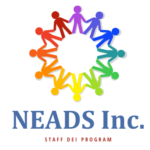The harmful ableist language you unknowingly use
Some of our most common, ingrained expressions have damaging effects on millions of people – and many of us don’t know we’re hurting others when we speak.
I like being deaf. I like the silence as well as the rich culture and language deafness affords me. When I see the word ‘deaf’ on the page, it evokes a feeling of pride for my community, and calls to me as if I’m being addressed directly, as if it were my name.
So, it always stings when I’m reminded that for many, the word ‘deaf’ has little to do with what I love most – in fact, its connotations are almost exclusively negative. For example, in headlines across the world – Nevada’s proposed gun safety laws, pleas from Ontario’s elderly and weather safety warnings in Queensland – have all “fallen on deaf ears.”
This kind of ‘ableist’ language is omnipresent in conversation: making a “dumb” choice, turning a “blind eye” to a problem, acting “crazy”, calling a boss “psychopathic”, having a “bipolar” day. And, for the most part, people who utter these phrases aren’t intending to hurt anyone – more commonly, they don’t have any idea they’re engaging in anything hurtful at all.
Click to read the full article By Sara Nović.
